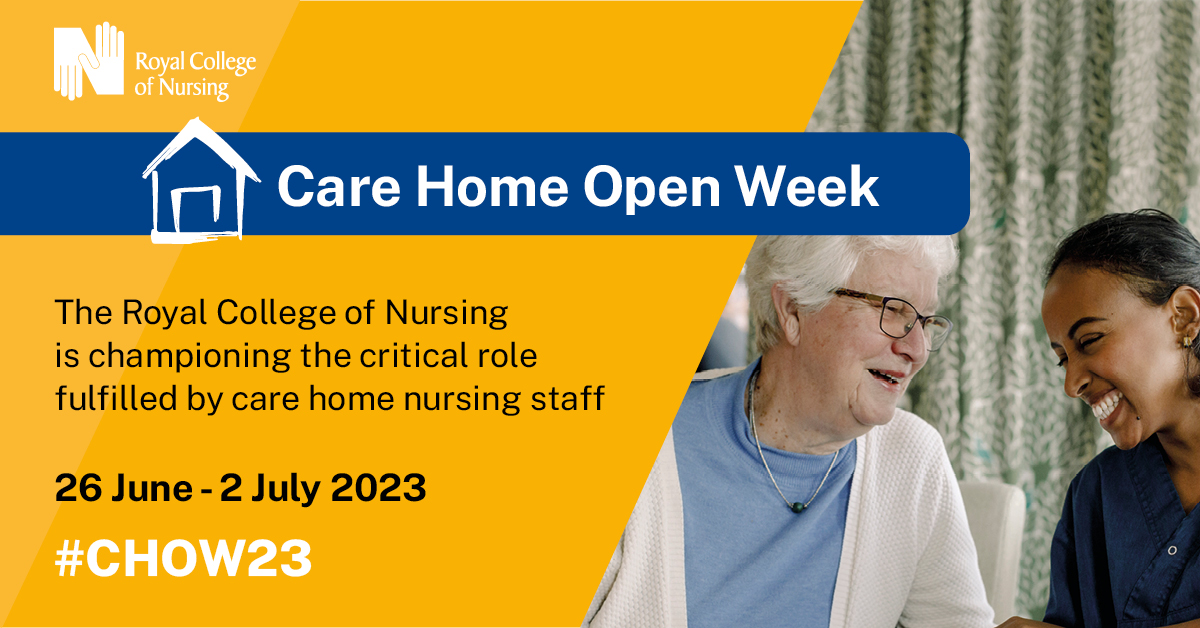
Nursing across independent health and social care
We’re here to support all our members, no matter what sector or setting you’re employed in.
A significant and growing number of our members work in independent health and social care (IHSC). This diverse group includes all nursing staff employed in settings outside the NHS. That could be care homes, nursing agencies, private hospitals or somewhere else entirely. It also includes members – such as general practice nurses – who may provide NHS services but not be employed on Agenda for Change contracts.
This page signposts you to some of our most popular resources. Many of these will be relevant to all members working in IHSC, while others are tailored to particular roles or workplaces. If you can’t find what you’re looking for, please get in touch by emailing ihsc@rcn.org.uk.
Key IHSC resources
Pay, terms and conditions in IHSC
Find information about pay, terms and conditions, including resources for starting conversations with your employer and requesting a pay rise.

How we work
Read about the different ways we support our members in IHSC and find out who’s leading this work in your country or region.

Funding opportunities for IHSC
Read our list of funding opportunities across the UK open to IHSC professionals.

Our fight for fair pay in IHSC employers
View a timeline of our recent campaigns for fair pay at a range of IHSC employers.

News and Events

News and Blogs

Upcoming IHSC events
General nursing resources
Most of the resources on our website are relevant to all members – no matter what sector or setting you’re employed in. This includes many of our advice guides and subject guides, as well as the clinical information on �������� Learn.
![]()
Advice guides
Advice for nursing staff about problems at work, ill health, careers, legal issues, money matters, counselling, and more.
![]()
Subject guides
These guides provide key resources, books and journals related to various subjects and nursing specialties in your area of practice.
![]()
Providing you the latest nursing, health and social care learning resources, to support you with further your learning development.
Workplace-specific resources
We also have a range of resources tailored to specific roles and workplaces within IHSC. You can access these resources through the relevant forum or network:
We're here for you
If you're an �������� member who needs help with any aspect of your employment, you can access online advice or contact us directly. We're here to help – wherever you work.

Upcoming events
Member blogs from independent health and social care settings
Here you will find a range of interesting blog articles by contributing members and our IHSC team, covering various topics within their areas of practice.
-
 17 Nov 2023
17 Nov 2023
The benefits of a roundtable discussion - and a care home provider success story
Why independent sector nursing staff should attend our roundtable discussions - and how one care home provider successfully negotiated funding for their health care support workers to study nursing with the Open University while continuing employment in their workplace.
-

 18 Sep 2023
18 Sep 2023
Pushing for a cultural shift
I’ve always been an �������� member, but it’s only as a staff member that I’ve realised the true extent of what we do for our members.
-
 23 Aug 2023
23 Aug 2023
Raising the voice of independent health and social care staff in Wales
Lisa Kieh, our Independent Sector and Community Adviser for Wales, discusses the challenges faced by members in independent health and social care and the work she’s been doing to support them.
-
 2 Aug 2023
2 Aug 2023
Using technology to improve pain management in care homes
Carol Dale, Lead Nurse for Independent Health and Social Care in Scotland, discusses how independent care nurses are exploring ways to improve pain management, including using digital technology.
-

 23 Jun 2023
23 Jun 2023
Time to highlight the value of nursing in care homes
While the NHS is very much part of everyone’s life, most of us don’t engage with care homes until later in life. This may be during a crisis when a friend, relative or indeed we are in need of support and subsequently make contact with social care services.







